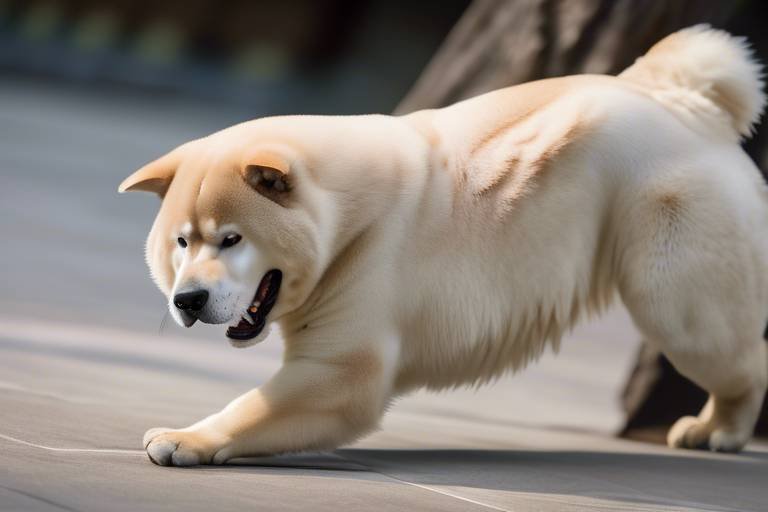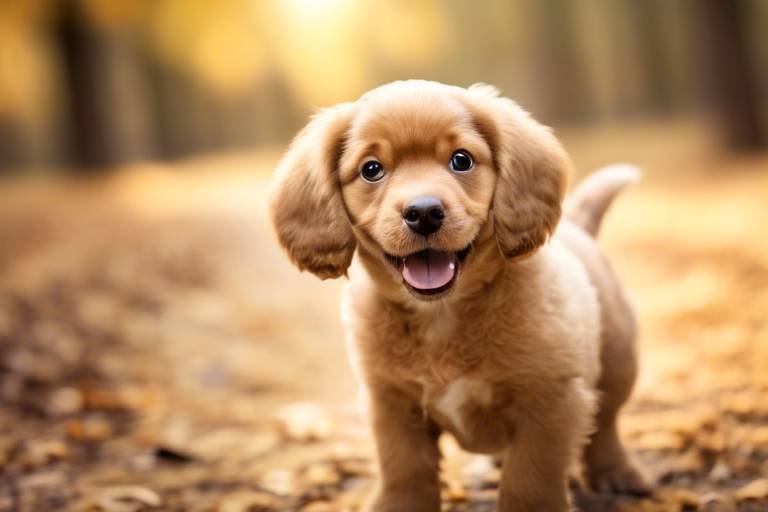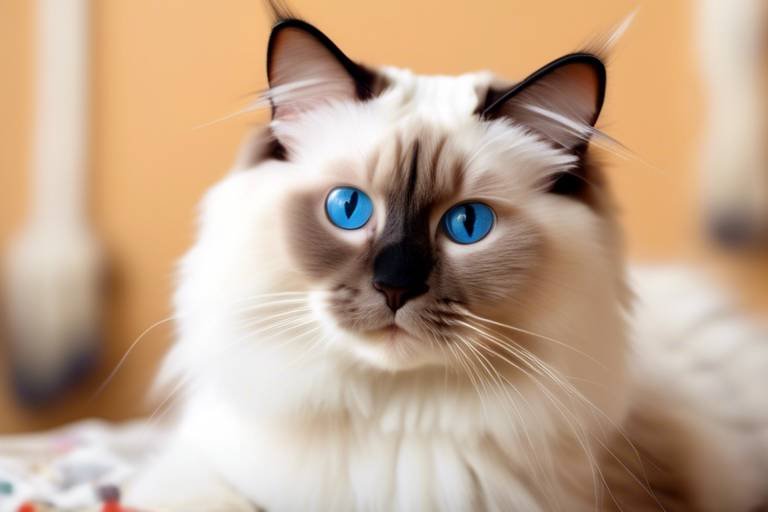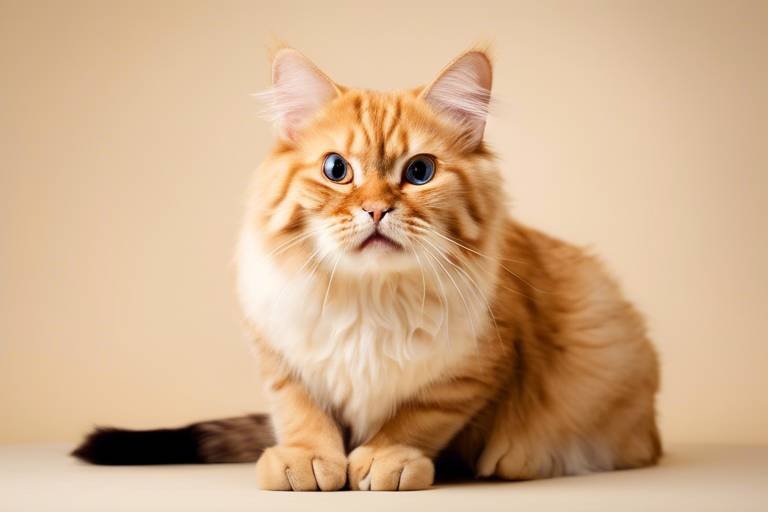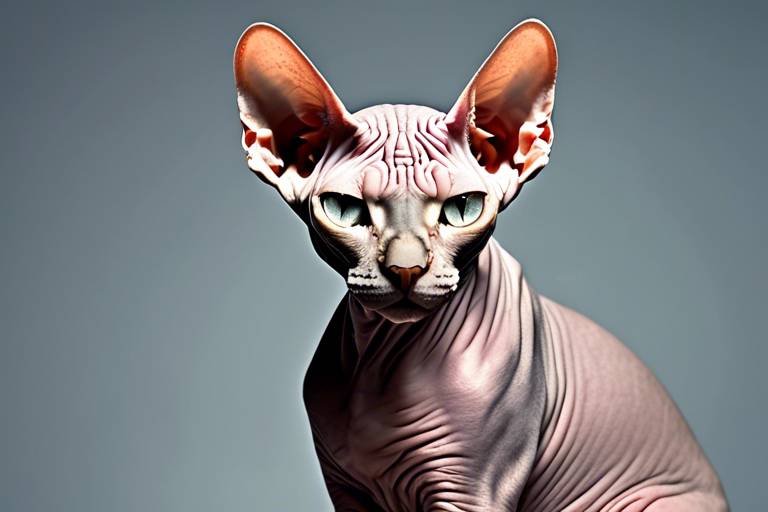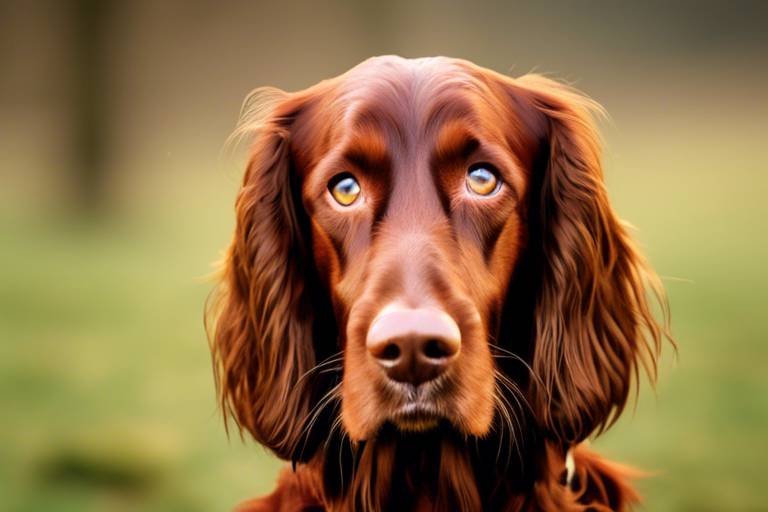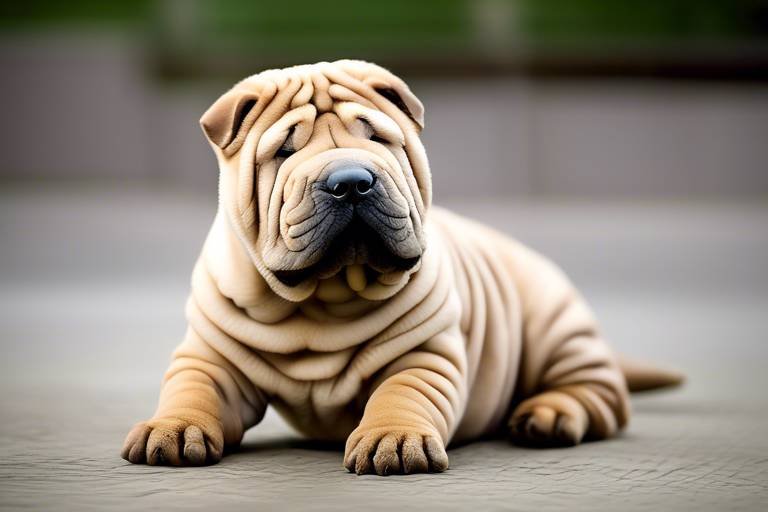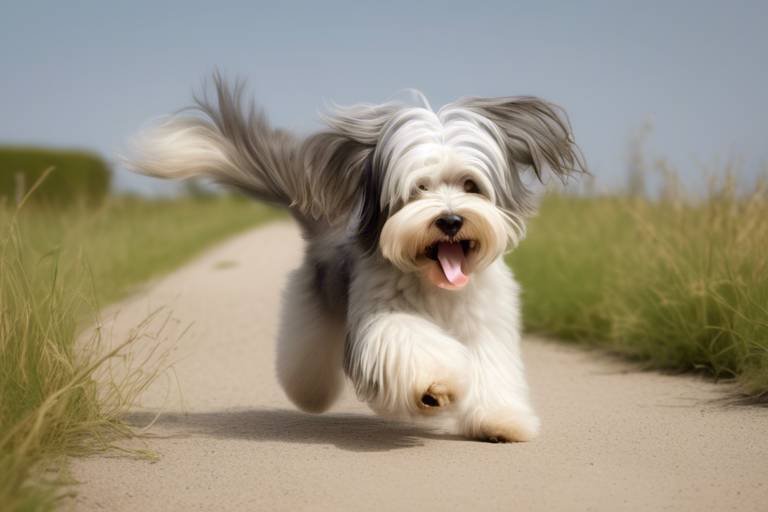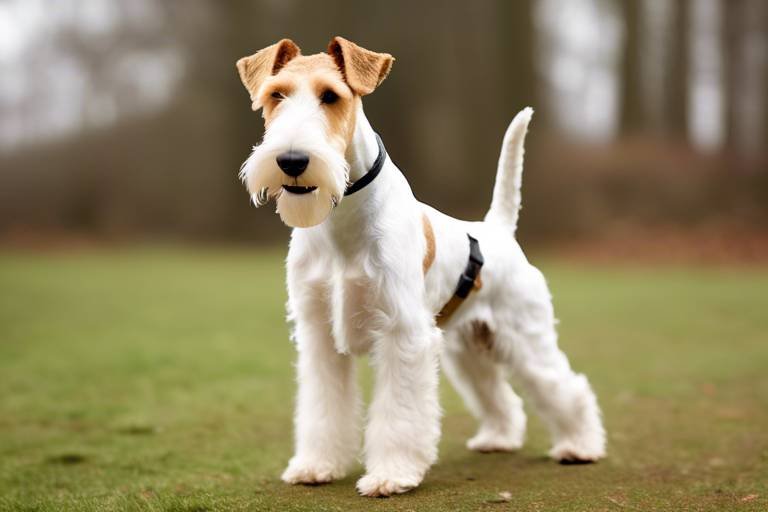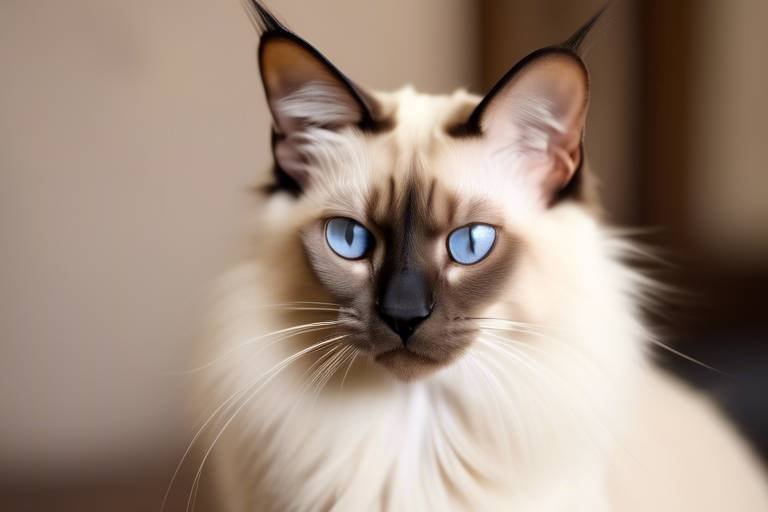Exploring the Unique Features of the Kishu Ken
The Kishu Ken is not just another dog breed; it’s a fascinating blend of history, culture, and exceptional traits that make it stand out in the canine world. Originating from Japan, this breed has a remarkable lineage that dates back centuries, primarily bred for hunting wild boar and deer. But what truly sets the Kishu Ken apart? It’s their loyalty, independence, and a unique set of physical characteristics that make them a joy to have as companions. Whether you’re a seasoned dog owner or a first-time pet parent, understanding the Kishu Ken’s distinctive features can help you appreciate this breed even more.
One of the most striking aspects of the Kishu Ken is its versatile nature. These dogs are not just hunters; they are loyal family members, protective companions, and intelligent beings that thrive in active environments. With their strong instincts and keen sense of awareness, they are always alert, making them excellent watchdogs. Their independence can be both a blessing and a challenge, as they often think for themselves. This unique blend of traits means that while they are devoted to their families, they also require a handler who understands their needs and respects their intelligent nature.
In this article, we will delve deeper into the Kishu Ken's origins, physical characteristics, temperament, training needs, health considerations, and much more. By the end, you will not only have a better understanding of this remarkable breed but also the tools to ensure a fulfilling companionship with your Kishu Ken. So, are you ready to explore the world of this incredible dog? Let’s dive in!
The Kishu Ken has a rich history rooted in Japan, where it was originally bred for hunting. Understanding its origins helps appreciate its unique traits and the cultural significance it holds. The breed is believed to have been developed in the Kishu region of Japan, where it was utilized for its exceptional hunting skills. This dog was primarily used to track and catch game, showcasing its agility and strength. The Kishu Ken is a testament to the Japanese ethos of harmony with nature; they were bred to work alongside humans, reflecting a deep bond that still exists today.
The Kishu Ken is known for its striking appearance, with a well-proportioned body and distinct coat colors. This section explores the breed’s physical traits that contribute to its appeal. Their medium size, typically weighing between 40 to 65 pounds, allows them to be agile hunters while also making them suitable companions for active families. They possess a strong, athletic build, which is crucial for their hunting background. The Kishu Ken's coat is another standout feature; it is dense and weather-resistant, providing protection during various outdoor activities.
Kishu Kens are medium-sized dogs with a strong, athletic build. Their size allows them to be agile hunters while also making them suitable companions for active families. With a height ranging from 17 to 22 inches at the shoulder, they are neither too small nor too large, striking a perfect balance. This size makes them versatile for different living situations, whether you live in an apartment or a house with a yard. Their muscular build not only enhances their hunting capabilities but also adds to their overall aesthetic appeal.
The breed’s coat is dense and weather-resistant, available in various colors. Kishu Kens can be found in colors such as white, red, brindle, and black. This variety not only adds to their visual appeal but also plays a role in their adaptability to different environments. The thick coat helps them withstand harsh weather conditions, making them suitable for outdoor activities all year round. Regular grooming is essential to maintain their coat's health and appearance, ensuring your Kishu Ken looks as stunning as they are.
Kishu Kens possess unique facial features, including erect ears and a sharp expression. These traits not only enhance their beauty but also serve functional purposes in the breed's hunting background. Their keen eyes and alert expression indicate intelligence and awareness, essential traits for a hunting dog. The erect ears help them pick up sounds from afar, making them excellent trackers. This combination of physical characteristics not only makes them visually striking but also equips them with the tools necessary for their historical role as hunters.
The temperament of the Kishu Ken is a blend of loyalty, independence, and intelligence. This section examines how these qualities influence their behavior and suitability as pets. Kishu Kens are known for their unwavering loyalty to their families, often forming strong bonds with their human companions. However, their independent nature means they can sometimes be aloof or reserved, especially around strangers. This makes early socialization crucial, as it helps them become well-rounded dogs. Their intelligence also means they require mental stimulation and challenges to keep them engaged and happy.
Training a Kishu Ken requires patience and consistency, given their independent nature. Here, we explore effective training methods and the importance of early socialization for this breed. While they are intelligent and eager to please, Kishu Kens can also be stubborn at times. This means that positive reinforcement techniques work best. Using treats and praise can motivate them to learn commands and obey.
Obedience training is crucial for Kishu Kens to ensure they are well-mannered companions. This section highlights techniques that work best for this intelligent breed. Training sessions should be kept short and engaging to maintain their interest. Incorporating play into training can also enhance their learning experience. Consistency is key; using the same commands and routines will help reinforce their training.
Proper socialization helps Kishu Kens develop into well-rounded dogs. This part offers practical tips for exposing them to different environments, people, and animals. Early exposure to various situations is essential. Take your Kishu Ken to parks, introduce them to new people, and even other pets. This will help them become more adaptable and reduce any potential anxiety in new situations.
Like all breeds, Kishu Kens are prone to certain health issues. This section discusses common health concerns and preventive measures to ensure their well-being throughout their lives. Regular veterinary check-ups are essential to monitor their health and catch any potential issues early. A balanced diet and regular exercise are also critical components of their overall well-being.
Understanding common health issues in Kishu Kens can help owners be proactive. This section outlines potential genetic conditions and how to monitor their health effectively. Some common health concerns include hip dysplasia, eye conditions, and skin allergies. Regular check-ups can help catch these issues early, ensuring your Kishu Ken remains healthy and happy.
Preventive care is essential for maintaining the health of Kishu Kens. This part covers vaccination schedules, regular check-ups, and nutrition tips to promote a long, healthy life. Keeping up with vaccinations and routine vet visits is crucial. Additionally, providing a balanced diet tailored to their needs will ensure they have the energy to thrive.
- What is the average lifespan of a Kishu Ken? The average lifespan is around 12 to 15 years.
- Are Kishu Kens good with children? Yes, they can be great with children if properly socialized from a young age.
- Do Kishu Kens require a lot of exercise? Yes, they are an active breed and require regular exercise to stay healthy and happy.
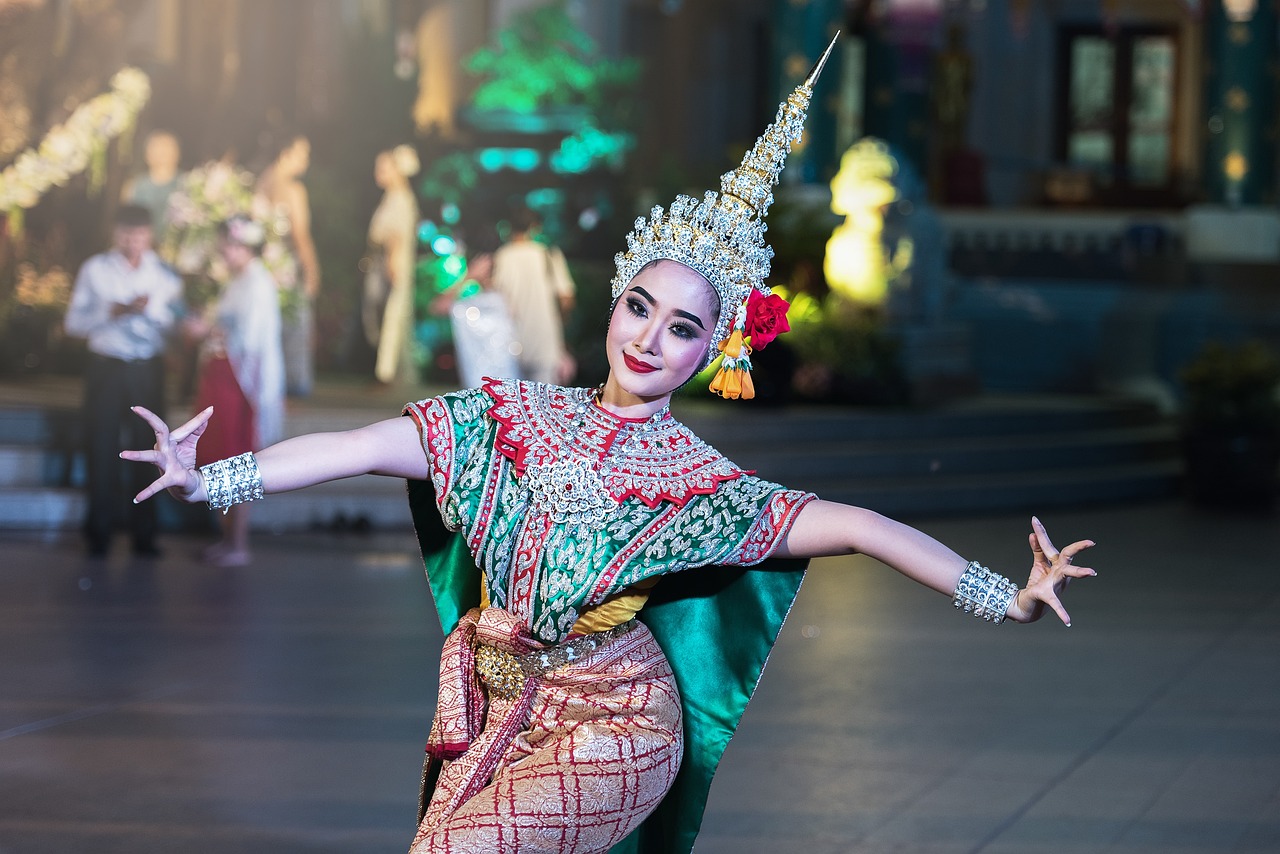
Origin and History
The Kishu Ken is a fascinating breed with deep roots in Japan, where it has been revered for centuries. Originating from the Kishu region, which is located in the mountainous areas of Honshu, this breed was primarily developed for hunting purposes. Imagine a time when the forests were dense, and the mountains echoed with the sounds of nature—this is where the Kishu Ken thrived. They were bred to hunt large game, such as boar and deer, showcasing their remarkable agility and keen sense of smell. This background not only highlights their physical capabilities but also underscores the bond they share with their human companions.
The breed's history is interwoven with Japanese culture, symbolizing loyalty and perseverance. Historically, the Kishu Ken was not just a hunting partner; it was a part of the family. In feudal Japan, these dogs were often given as gifts to samurai, which further solidified their status as noble companions. Their loyalty and intelligence made them invaluable, and they quickly became a symbol of strength and resilience. As Japan modernized, the Kishu Ken faced challenges, including a decline in hunting due to changes in lifestyle and the introduction of other breeds.
In the 20th century, efforts were made to preserve the Kishu Ken, leading to its recognition as a distinct breed. In 1934, it was designated as a Natural Monument of Japan, a title that reflects its cultural significance and historical importance. This recognition has played a crucial role in promoting the breed and ensuring its survival. Today, the Kishu Ken remains a symbol of Japanese heritage, embodying qualities that are cherished both in Japan and around the world.
To truly appreciate the Kishu Ken, one must understand the interplay between its history and its unique characteristics. The breed's hunting prowess, combined with its loyal nature, makes it a remarkable companion for those who value an active lifestyle. As we explore the Kishu Ken further, we will uncover the physical traits that set this breed apart, as well as the temperament that makes it a beloved pet.
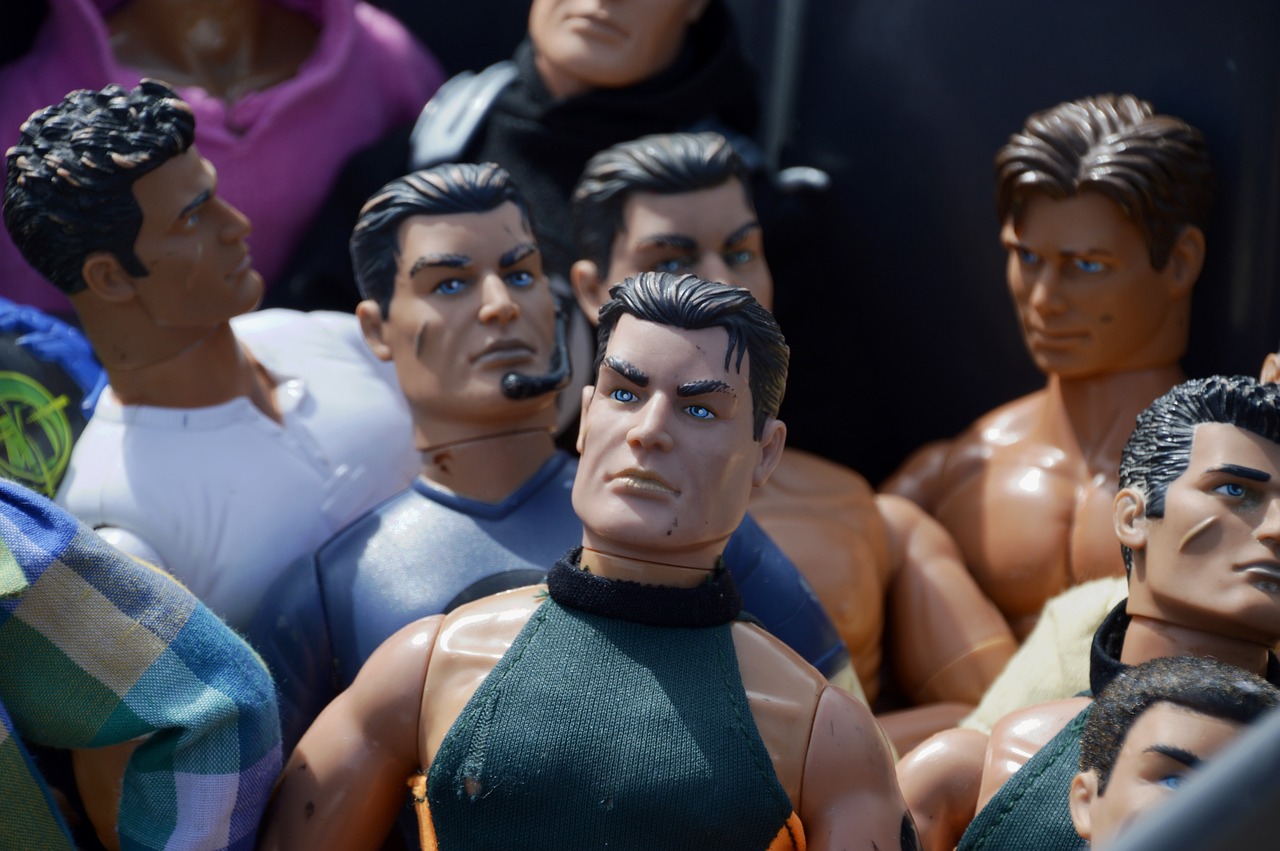
Physical Characteristics
The Kishu Ken is not just another dog breed; it is a stunning example of nature's artistry combined with functionality. With its striking appearance, this breed commands attention wherever it goes. The Kishu Ken is characterized by a well-proportioned body that exudes strength and agility, making it an ideal companion for those who lead an active lifestyle. But what exactly makes this breed stand out? Let's dive into the details that highlight the unique physical traits of the Kishu Ken.
When it comes to size, the Kishu Ken is classified as a medium-sized dog, typically weighing between 40 to 65 pounds and standing around 17 to 22 inches tall at the shoulder. This size is perfect for a dog that needs to be both agile and robust. Their athletic build is not just for show; it reflects their history as hunters in the rugged terrains of Japan. Imagine a dog that can sprint through dense forests, climb steep hills, and still be a loving family companion! Their strong legs and muscular frame allow them to navigate various environments with ease, making them a perfect fit for families who enjoy outdoor activities.
The Kishu Ken boasts a dense, weather-resistant coat that is not only beautiful but also functional. The coat comes in a variety of colors, including:
- White
- Red
- Brindle
- Black
This variety not only adds to their visual appeal but also serves a practical purpose. The thick fur protects them from harsh weather conditions, allowing them to thrive in different climates. Whether it’s rain, snow, or sun, the Kishu Ken is well-equipped to handle it all. Their coat sheds moderately, which means regular grooming is necessary to keep it looking its best and to maintain a healthy skin condition.
The facial features of the Kishu Ken are nothing short of captivating. With erect ears that stand tall and a sharp, alert expression, these dogs have a look that can easily melt your heart. Their eyes are typically almond-shaped, conveying intelligence and curiosity. Have you ever seen a dog that seems to understand you just by looking at you? That’s the Kishu Ken for you! Their unique facial structure not only enhances their beauty but also plays a role in their hunting abilities. The erect ears help them detect sounds from afar, making them excellent hunters.
In conclusion, the Kishu Ken is a breed that embodies a perfect blend of beauty and functionality. From their athletic build to their diverse coat colors and expressive faces, they are truly a sight to behold. Whether you’re looking for a loyal companion or a skilled hunting partner, the Kishu Ken stands out as a remarkable choice.
Q: Are Kishu Kens good family pets?
A: Yes, Kishu Kens are known for their loyalty and protective nature, making them great companions for families. However, they require proper training and socialization.
Q: How much exercise do Kishu Kens need?
A: Kishu Kens are active dogs that need regular exercise. Daily walks, playtime, and mental stimulation are essential for their well-being.
Q: Do Kishu Kens get along with other pets?
A: While Kishu Kens can be socialized to get along with other pets, their strong prey drive may make them less compatible with smaller animals.
Q: What is the lifespan of a Kishu Ken?
A: On average, Kishu Kens live between 12 to 15 years, depending on their health and care.
Size and Build
The Kishu Ken is a medium-sized dog that embodies strength and agility. These dogs typically weigh between 40 to 65 pounds and stand around 17 to 22 inches tall at the shoulder. Their well-proportioned bodies are designed for both endurance and speed, making them exceptional hunters in their native Japan. Imagine a sleek, athletic figure that combines the grace of a gazelle with the power of a lion—this is what you get with a Kishu Ken.
One of the most remarkable aspects of the Kishu Ken's build is its muscular frame, which allows for remarkable agility and stamina. This breed was originally developed for hunting large game, which required not just strength but also the ability to navigate through rugged terrains with ease. Their strong legs and compact bodies make them perfect companions for outdoor enthusiasts and active families alike.
In terms of overall appearance, Kishu Kens have a dignified stance and a confident demeanor. Their strong necks lead to a well-defined chest, giving them an imposing yet elegant look. This breed's athletic build is complemented by a balanced structure, which enhances their agility during play or while on a hunt. The Kishu Ken's body is not just built for show; it's a finely tuned machine designed for performance.
Moreover, their size makes them versatile companions. Whether you're hiking through the mountains or lounging at home, the Kishu Ken can adapt to various lifestyles. They are not too large to be cumbersome, yet not too small to be overlooked. This perfect balance makes them an ideal choice for families who enjoy an active lifestyle, as they can keep up with both physical activities and family bonding moments.
In summary, the Kishu Ken's size and build are not just physical characteristics; they represent a breed that has been honed over centuries for specific tasks. Their athleticism, strength, and adaptability make them a unique and valuable addition to any household that values both companionship and an active lifestyle.
Coat and Color
The Kishu Ken is not just a feast for the eyes; its coat and color are integral to its identity and functionality. This breed boasts a dense, weather-resistant coat that serves as protection against the elements, making it an ideal companion for outdoor enthusiasts. The coat is typically short to medium in length, which not only enhances its striking appearance but also makes grooming relatively easy. The Kishu Ken’s coat comes in a variety of colors, each adding to its unique charm. Common colors include:
- White
- Red
- Brindle
- Black
- Black and Tan
Each of these colors has its own appeal, with the white Kishu Ken often being regarded as particularly striking. The red variety, on the other hand, showcases a warm, inviting hue that reflects the breed's spirited nature. The brindle Kishu Ken, with its unique striped pattern, stands out in any crowd. The black and black and tan options provide a more classic look, appealing to those who prefer a traditional aesthetic.
But it's not just about looks. The coat types of the Kishu Ken contribute significantly to their adaptability in various climates. The dense undercoat acts as insulation during colder months, while the outer coat repels water, allowing these dogs to thrive in diverse environments. This ability to withstand different weather conditions is a testament to their hunting heritage, as they were originally bred to hunt in the rugged landscapes of Japan.
Moreover, the Kishu Ken's coat color can sometimes influence its personality traits and behavior. For instance, many owners have noted that their white Kishu Kens tend to be more laid-back, while the brindle ones often exhibit a more energetic disposition. While these observations are anecdotal, they add an interesting layer to the understanding of this breed.
In conclusion, the coat and color of the Kishu Ken are not merely aesthetic features; they are key elements that define the breed's functionality and character. Whether you're drawn to the striking colors or the practical benefits of their coat, the Kishu Ken offers a perfect blend of beauty and utility that makes them a unique companion.
| Question | Answer |
|---|---|
| What is the best grooming routine for a Kishu Ken? | Regular brushing once a week is recommended to keep their coat healthy and reduce shedding. |
| Do Kishu Kens shed a lot? | They have a moderate shedding level, especially during seasonal changes. |
| Are there any specific colors that require more care? | All colors require similar care, but lighter colors may show dirt more easily. |
Facial Features
The Kishu Ken is not just another pretty face in the dog world; its facial features are a blend of beauty and functionality that truly sets it apart. One of the most striking characteristics of this breed is its erect ears, which stand tall and alert, giving the dog an attentive and intelligent appearance. These ears are not just for show; they serve a crucial purpose in the breed's hunting background, allowing the Kishu Ken to pick up sounds from afar, making them exceptional hunters.
Another notable aspect of the Kishu Ken's face is its sharp expression. This expression often conveys a sense of confidence and determination, traits that are essential for a hunting dog. The eyes of a Kishu Ken are typically almond-shaped, which adds to their keen look. Their color can vary, but they often have dark, penetrating eyes that seem to observe everything around them. This quality not only enhances their beauty but also reflects their intelligent nature.
When it comes to the muzzle, the Kishu Ken has a well-proportioned and strong jawline that complements its overall appearance. This build is essential for their original purpose as hunting dogs, as a strong bite is necessary for catching prey. The muzzle is neither too long nor too short, striking a balance that adds to the breed's aesthetic appeal.
To summarize, here are some key facial features of the Kishu Ken:
- Erect Ears: Stand tall and alert, aiding in sound detection.
- Sharp Expression: Conveys confidence and determination.
- Almond-Shaped Eyes: Dark and penetrating, enhancing their keen look.
- Well-Proportioned Muzzle: Strong jawline essential for hunting.
These facial features not only contribute to the Kishu Ken's striking appearance but also play a vital role in their functionality as a hunting breed. The combination of their physical traits with their loyal and intelligent temperament makes them a unique and cherished companion for those who appreciate the breed's rich history and capabilities.
Here are some common questions about the Kishu Ken:
- What is the Kishu Ken's temperament like? The Kishu Ken is known for its loyalty, independence, and intelligence, making it a great companion for active families.
- How do I train a Kishu Ken? Training requires patience and consistency, with a focus on obedience and socialization.
- What health issues should I be aware of? Common health concerns include hip dysplasia and certain genetic conditions; regular check-ups are essential.
- What is the best diet for a Kishu Ken? A balanced diet rich in proteins and nutrients is crucial for maintaining their health and energy levels.
Temperament and Behavior
The Kishu Ken is more than just a stunning dog with striking features; it embodies a distinct temperament that sets it apart from many other breeds. Known for their loyalty, these dogs form strong bonds with their families, often displaying an unwavering dedication that can be both heartwarming and protective. Imagine a guardian who stands by your side, always alert and ready to defend; that's the Kishu Ken for you. Their loyalty, however, comes with a touch of independence. This breed was originally developed for hunting, which means they possess a strong instinct to think for themselves. While this independence can be a double-edged sword, it also makes them incredibly intelligent and resourceful.
In terms of behavior, Kishu Kens are known for being reserved around strangers but are affectionate with their family members. This characteristic can make them excellent watchdogs, as they tend to be cautious and observant. Their intelligence means they can be trained effectively, but it also means they require a handler who understands their unique personality. Owners often find that positive reinforcement works best, as Kishu Kens respond well to rewards and praise but can become stubborn if they sense any form of negativity.
Another fascinating aspect of their temperament is their playfulness. Despite their serious demeanor, Kishu Kens enjoy interactive play and can be quite entertaining. Whether it's a game of fetch or a spirited romp in the yard, these dogs thrive on activity. However, they also appreciate downtime, often choosing a cozy spot to relax after a bout of play. This balance of energy makes them suitable for various lifestyles, from active families to quieter households.
Socialization plays a crucial role in shaping a Kishu Ken's behavior. Early exposure to different environments, people, and animals can help mitigate their natural wariness of strangers. Socialization not only enhances their adaptability but also encourages a well-rounded personality. Owners should prioritize this aspect of training to ensure that their Kishu Ken grows into a confident and well-mannered adult. A well-socialized Kishu Ken is likely to be more relaxed in new situations, making outings and visits to the vet less stressful.
In summary, the Kishu Ken's temperament is a rich tapestry woven from loyalty, independence, intelligence, and playfulness. Understanding these traits can help potential owners appreciate what it means to welcome one of these remarkable dogs into their lives. With the right training and socialization, a Kishu Ken can be a loving and devoted companion, ready to embark on adventures by your side.
- Are Kishu Kens good with children? Yes, Kishu Kens can be excellent companions for children, especially when socialized properly from a young age.
- How much exercise do Kishu Kens need? They require regular exercise to stay healthy and happy, ideally a mix of physical activity and mental stimulation.
- Do Kishu Kens shed a lot? They have a dense coat that sheds moderately, so regular grooming is necessary to keep their fur in check.
- Are they easy to train? With consistent and positive reinforcement training methods, Kishu Kens can learn commands effectively, although their independent nature may present challenges.

Training and Socialization
Training a Kishu Ken can be a rewarding yet challenging experience, primarily due to their independent nature. These dogs are intelligent and quick learners, but they also have a strong will, which means they might not always be eager to follow commands. To establish a successful training regimen, it's essential to approach them with patience and consistency. Imagine trying to convince a stubborn child to eat their vegetables; you need to be persistent but also creative. Using positive reinforcement techniques, such as treats and praise, can significantly enhance their learning experience.
Socialization is equally crucial for Kishu Kens. Early exposure to various environments, people, and other animals helps them develop into well-rounded dogs. Think of socialization as a form of education for your Kishu; the more diverse their experiences, the better equipped they will be to handle different situations later in life. This breed tends to be reserved around strangers, so introducing them to new experiences at a young age can help mitigate any potential shyness or aggression.
Here are some effective training methods tailored specifically for the Kishu Ken:
- Positive Reinforcement: Rewarding desired behaviors with treats or praise encourages them to repeat those actions.
- Short Training Sessions: Keeping training sessions brief but frequent helps maintain their interest and focus.
- Consistency is Key: Using the same commands and signals helps avoid confusion and reinforces learning.
Additionally, socialization tips for Kishu Kens include:
- Start Early: Begin socializing your Kishu Ken as a puppy to help them adjust to new experiences.
- Expose Them to Different Environments: Take them to parks, busy streets, and various social gatherings.
- Introduce Them to Other Pets: Gradually expose them to different animals to help them learn appropriate behaviors.
It's important to remember that training and socialization are ongoing processes. Just like a fine wine that improves with age, your Kishu Ken will continue to learn and adapt throughout their life. Regular training sessions and socialization opportunities will not only enhance their behavior but also strengthen the bond between you and your furry friend.
Q: How long does it take to train a Kishu Ken?
A: Training duration varies based on the dog and the owner's consistency. Generally, you can expect to see noticeable progress within a few weeks.
Q: Are Kishu Kens good with children?
A: Yes, Kishu Kens can be great with children if properly socialized. However, supervision is essential, especially with younger kids.
Q: What is the best age to start training?
A: The earlier, the better! Starting training and socialization during the puppy stage (around 8 weeks old) is ideal for developing good habits.
Q: Can Kishu Kens be trained off-leash?
A: While they can be trained to walk off-leash, it requires a strong recall command and consistent training. Always assess the environment for safety.
Obedience Training
Training a Kishu Ken is not just about teaching commands; it’s about building a relationship based on trust and respect. These dogs, known for their independent nature, thrive when they understand the purpose behind each command. So, how do you turn your Kishu Ken into a well-mannered companion? The secret lies in consistency, patience, and a sprinkle of creativity!
First off, it’s essential to start training early. Puppies are like sponges, soaking up everything around them, and this is the perfect time to introduce basic obedience commands such as sit, stay, and come. Using positive reinforcement techniques, such as treats and praise, can significantly enhance the learning experience. Imagine you’re at a café, and your Kishu Ken is sitting quietly beside you, enjoying the attention instead of jumping around. This is the result of effective training!
One effective method is the clicker training technique. This involves using a small device that makes a clicking sound when your dog performs the desired behavior. The click serves as a marker, indicating to your Kishu Ken that they’ve done something right. Pair the click with a treat, and soon enough, your dog will associate the click with positive outcomes. It’s like a game of charades, where your Kishu Ken learns to communicate with you through actions!
Another important aspect of obedience training is consistency. Make sure everyone in your household uses the same commands and rewards. Imagine the confusion if you say “sit” while someone else says “down”! To avoid mixed signals, create a training schedule that everyone can follow. This not only helps your dog learn faster but also strengthens the bond between your Kishu Ken and your family.
Incorporating fun into training can make a world of difference. Try turning commands into a game! For example, hide treats around your home and ask your Kishu Ken to find them. This not only reinforces their obedience skills but also taps into their natural hunting instincts. Think of it as a treasure hunt where your dog is the hero!
Lastly, remember to be patient. Every dog learns at their own pace, and some commands may take longer to master than others. Celebrate small victories, and don’t get discouraged by setbacks. Training should be a positive experience for both you and your Kishu Ken. After all, the journey is just as important as the destination!
- How long does it take to train a Kishu Ken?
Training duration varies, but with consistent practice, basic commands can be learned in a few weeks. - What is the best age to start training?
Starting training as early as 8 weeks old is ideal, as puppies are more receptive to learning. - Can Kishu Kens be trained off-leash?
Yes, but it requires a strong foundation in obedience training and a reliable recall command. - What if my Kishu Ken is stubborn?
Stubbornness can be addressed with patience, positive reinforcement, and engaging training methods.
Socialization Tips
Socializing your Kishu Ken is essential for their development as well-rounded companions. Imagine a dog that feels comfortable in various environments, interacts well with people and animals, and has the confidence to explore the world around them. This is what effective socialization can achieve! Begin this process early, ideally when your Kishu Ken is a puppy, as this is the critical period for social exposure. However, even adult dogs can benefit from new experiences.
One of the best ways to socialize your Kishu Ken is through regular exposure to different environments. Take them on walks in diverse settings—parks, busy streets, and quiet neighborhoods. Each new location presents unique sights, sounds, and smells that can help your dog adapt to various situations. Additionally, consider enrolling them in puppy classes or obedience training sessions. These classes not only teach essential commands but also allow your dog to interact with other dogs and people, which is vital for their social skills.
When introducing your Kishu Ken to new experiences, use positive reinforcement techniques. Reward them with treats or praise when they react calmly to new stimuli. This will help them associate new experiences with positive outcomes. For example, if they meet a friendly dog, encourage them with a treat when they approach it without fear. On the flip side, if they show signs of anxiety, don’t force the interaction; instead, give them space and try again later. This gradual approach fosters trust and confidence in your Kishu Ken.
Another effective strategy is to invite friends and family over to your home. This controlled environment allows your Kishu Ken to meet new people in a familiar setting. Encourage your guests to offer treats and engage in play, which can help your dog associate strangers with positive experiences. Remember, the goal is to make your Kishu Ken feel comfortable and secure in various social situations.
Lastly, don’t forget about the importance of exposure to different animals. If possible, arrange playdates with other dogs or take your Kishu Ken to dog parks. Supervised interactions with other pets can teach them proper social cues and behaviors. However, always monitor these interactions closely to ensure they are positive and safe.
In summary, socializing your Kishu Ken is a journey that requires patience and consistency. By exposing them to different environments, using positive reinforcement, and encouraging interaction with people and other animals, you will help your dog develop into a confident and well-adjusted companion. Remember, the more experiences you provide, the better equipped your Kishu Ken will be to handle the world around them!
- How early should I start socializing my Kishu Ken? It's best to start socialization during the critical puppy stage, around 3 to 14 weeks old, but older dogs can still benefit from social experiences.
- What are some signs my Kishu Ken is anxious during socialization? Signs may include excessive barking, hiding, or growling. If your dog shows these signs, it’s important to give them space and not force interactions.
- Can socialization help with aggressive behavior? Yes, proper socialization can reduce fear and anxiety, which can lead to aggressive behavior. It's crucial to expose your dog to various situations positively.
- How often should I socialize my Kishu Ken? Regular socialization is key. Aim for several short sessions throughout the week, gradually increasing exposure to new experiences.
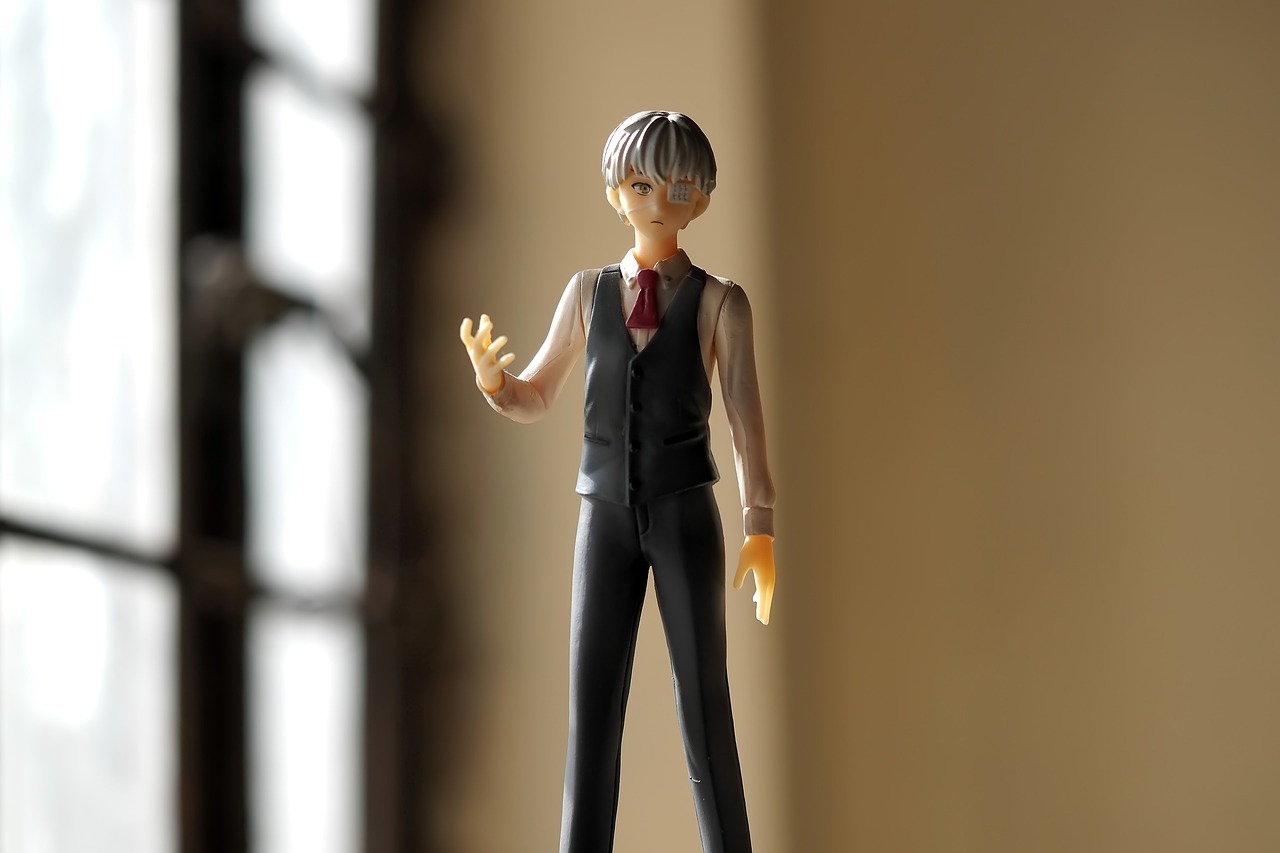
Health Considerations
The Kishu Ken, like any other dog breed, comes with its own set of health considerations that potential owners should be aware of. While they are generally robust and healthy, being informed about their specific health concerns can help you provide the best care for your furry companion. This breed is known for its longevity, often living between 12 to 15 years, but that doesn't mean they are immune to health issues. Understanding these concerns can help you take proactive measures to ensure a long and healthy life for your Kishu Ken.
One of the most common health issues seen in Kishu Kens is hip dysplasia, a genetic condition where the hip joint doesn't fit into the hip socket properly. This can lead to arthritis and pain, particularly as they age. Regular check-ups with your veterinarian can help monitor this condition, and maintaining a healthy weight is crucial. Obesity can exacerbate joint problems, so ensuring your Kishu Ken gets plenty of exercise is vital.
Another health concern to keep in mind is allergies, which can manifest as skin irritations or digestive issues. Kishu Kens can be sensitive to certain foods or environmental factors. It's essential to observe your dog for any signs of discomfort and consult with your vet about appropriate dietary choices or possible allergens in their environment. Keeping a food diary can be helpful in identifying triggers.
Additionally, Kishu Kens are prone to certain hereditary conditions, such as progressive retinal atrophy (PRA), which can lead to vision loss. Regular eye examinations can help catch this early, allowing for better management of the condition. Regular health screenings and being aware of your dog’s family history can also aid in preventing these issues from becoming serious.
To summarize, here are some common health issues and preventive measures for Kishu Kens:
| Health Issue | Preventive Measures |
|---|---|
| Hip Dysplasia | Regular vet check-ups, maintain a healthy weight, and provide regular exercise. |
| Allergies | Monitor for signs of allergies, maintain a food diary, and consult your vet for dietary advice. |
| Progressive Retinal Atrophy | Regular eye examinations and awareness of family health history. |
Preventive care is essential for maintaining the health of Kishu Kens. This includes ensuring they are up-to-date on vaccinations, regular vet check-ups, and a balanced diet tailored to their specific needs. Nutrition plays a significant role in the overall health of your dog, so choosing high-quality dog food that meets their nutritional requirements will help them thrive. Always consult your veterinarian for the best dietary recommendations.
In conclusion, while Kishu Kens are generally healthy dogs, being proactive about their health can lead to a longer, happier life. Regular veterinary visits, awareness of common health issues, and a commitment to preventive care are key to ensuring your Kishu Ken remains a loyal and active member of your family for years to come.
- What is the average lifespan of a Kishu Ken? Kishu Kens typically live between 12 to 15 years.
- Are Kishu Kens prone to any specific health issues? Yes, they can be prone to hip dysplasia, allergies, and progressive retinal atrophy.
- How can I ensure my Kishu Ken stays healthy? Regular vet check-ups, a balanced diet, and adequate exercise are essential.
- What kind of diet is best for a Kishu Ken? A high-quality dog food that meets their nutritional needs is recommended, and consulting your vet can provide tailored advice.
Common Health Issues
The Kishu Ken, like many dog breeds, is not immune to certain health issues that can affect its quality of life. Understanding these potential health concerns is crucial for any prospective owner, as it enables them to take proactive steps in ensuring their furry friend's well-being. Some of the most common health issues associated with Kishu Kens include hip dysplasia, progressive retinal atrophy (PRA), and certain skin conditions.
Hip dysplasia is a genetic condition that affects the hip joint, leading to arthritis and pain. This condition can be exacerbated by factors such as obesity and lack of exercise, making it vital for Kishu Ken owners to maintain a healthy weight and engage in regular physical activity. Regular veterinary check-ups can help catch this issue early, allowing for timely intervention.
Another concern is progressive retinal atrophy, a degenerative eye condition that can lead to vision loss. While it may not be immediately noticeable, signs such as difficulty navigating in low light can indicate the onset of this condition. Regular eye examinations by a veterinarian can help monitor the health of your Kishu Ken's eyes, ensuring any issues are addressed promptly.
Additionally, Kishu Kens can be prone to various skin conditions, including allergies and dermatitis. These issues can arise from environmental factors, food sensitivities, or even parasites. It's essential for owners to observe their pets for signs of itching, redness, or hair loss, as these can be indicators of underlying skin problems. A proper diet, regular grooming, and timely veterinary care can help mitigate these issues.
To summarize, here are some common health issues that Kishu Kens may face:
- Hip Dysplasia
- Progressive Retinal Atrophy (PRA)
- Skin Conditions (Allergies, Dermatitis)
Being aware of these health issues allows Kishu Ken owners to create a proactive health care plan. Regular veterinary visits, a balanced diet, and an active lifestyle can significantly reduce the risk of these conditions and contribute to a long, healthy life for your Kishu Ken.
Q: What is the average lifespan of a Kishu Ken?
A: The average lifespan of a Kishu Ken is typically between 12 to 15 years, depending on their overall health and care.
Q: Are Kishu Kens good with children?
A: Yes, Kishu Kens can be great companions for children, especially when properly socialized from a young age. Their loyal and protective nature makes them good family pets.
Q: How often should I take my Kishu Ken to the vet?
A: Regular veterinary check-ups are recommended at least once a year. However, if your Kishu Ken shows signs of health issues, more frequent visits may be necessary.
Q: What kind of diet is best for a Kishu Ken?
A: A high-quality, balanced diet rich in protein, healthy fats, and essential nutrients is ideal for Kishu Kens. Consulting with your veterinarian can help you determine the best diet for your dog's specific needs.
By staying informed about common health issues and incorporating preventive care into your routine, you can help ensure your Kishu Ken leads a happy and healthy life.
Preventive Care
When it comes to the health of your Kishu Ken, preventive care is not just a suggestion—it's a necessity. Just like you wouldn't drive a car without regular maintenance, you shouldn't overlook the health needs of your furry companion. A proactive approach can help you avoid many common health issues that can arise as your Kishu Ken ages. So, what does preventive care entail?
First off, regular veterinary check-ups are essential. These visits allow your vet to monitor your dog's health and catch any potential issues early. A typical check-up might include:
- Physical examinations
- Vaccinations
- Dental cleanings
- Parasite control (like flea and tick prevention)
In addition to routine vet visits, you should also establish a vaccination schedule tailored to your Kishu Ken’s lifestyle and environment. Vaccinations protect against harmful diseases and are a cornerstone of preventive care. Your vet can help you determine the best vaccination plan for your pet, considering factors like age, health status, and exposure risks.
Nutrition plays a pivotal role in preventive care as well. Feeding your Kishu Ken a balanced diet rich in high-quality proteins, healthy fats, and essential vitamins can significantly impact their overall health. Be sure to consult your vet about the best food options and portion sizes to keep your dog in tip-top shape. Remember, a healthy dog is a happy dog!
Another critical aspect of preventive care is dental hygiene. Many pet owners overlook this, but dental disease is incredibly common among dogs and can lead to serious health problems if left untreated. Regular brushing, dental chews, and professional cleanings can help keep your Kishu Ken’s teeth and gums healthy.
Lastly, don't forget about mental stimulation and exercise. Kishu Kens are intelligent and active dogs that thrive on physical and mental challenges. Regular walks, playtime, and even puzzle toys can help keep their minds sharp and their bodies fit. A well-exercised dog is less likely to develop behavioral issues, making this an often-overlooked but vital part of preventive care.
To summarize, preventive care for your Kishu Ken should include:
| Preventive Measure | Importance |
|---|---|
| Regular Vet Check-ups | Early detection of health issues |
| Vaccination Schedule | Protection against diseases |
| Balanced Nutrition | Supports overall health |
| Dental Care | Prevents dental disease |
| Mental and Physical Exercise | Prevents behavioral issues |
By incorporating these preventive measures into your Kishu Ken's life, you can help ensure they live a long, healthy, and happy life. Remember, a proactive pet owner is a responsible pet owner!
Q: How often should I take my Kishu Ken to the vet?
A: It's generally recommended to take your Kishu Ken for a check-up at least once a year. However, if your dog has specific health concerns, more frequent visits may be necessary.
Q: What vaccinations does my Kishu Ken need?
A: Your Kishu Ken will need core vaccinations such as rabies, distemper, parvovirus, and adenovirus. Additional vaccines may be recommended based on your dog's lifestyle and environment.
Q: How can I maintain my Kishu Ken's dental health?
A: Regular brushing, dental chews, and professional cleanings are all effective ways to maintain your dog's dental health. Start brushing your dog's teeth early to get them accustomed to the process.
Q: What kind of diet is best for my Kishu Ken?
A: A high-quality, balanced diet that includes proteins, fats, and essential nutrients is best for your Kishu Ken. Consult your vet for specific recommendations based on your dog's age and activity level.
Frequently Asked Questions
- What is the origin of the Kishu Ken?
The Kishu Ken originates from Japan, where it was initially bred for hunting. This breed has a rich history that reflects its cultural significance and unique traits, making it a treasured companion for many.
- What are the physical characteristics of a Kishu Ken?
Kishu Kens are medium-sized dogs with a strong, athletic build. They possess a dense, weather-resistant coat that comes in various colors, and their striking facial features, including erect ears and a sharp expression, enhance their overall appeal.
- How is the temperament of a Kishu Ken?
The Kishu Ken is known for its loyalty, independence, and intelligence. These qualities influence their behavior, making them both loving companions and capable hunters. They thrive in active environments where they can express their natural instincts.
- What training methods are effective for Kishu Kens?
Training a Kishu Ken requires patience and consistency due to their independent nature. Positive reinforcement techniques work best, and early socialization is crucial to help them become well-rounded dogs.
- What common health issues should Kishu Ken owners be aware of?
Kishu Kens can be prone to certain genetic conditions, so it's essential for owners to monitor their health closely. Regular veterinary check-ups and being aware of potential health concerns can help ensure a long and healthy life for your pet.
- What preventive care is recommended for Kishu Kens?
Preventive care is vital for Kishu Kens. This includes vaccination schedules, regular check-ups, and a balanced diet to promote overall health. Keeping up with these practices can significantly enhance your dog's quality of life.

